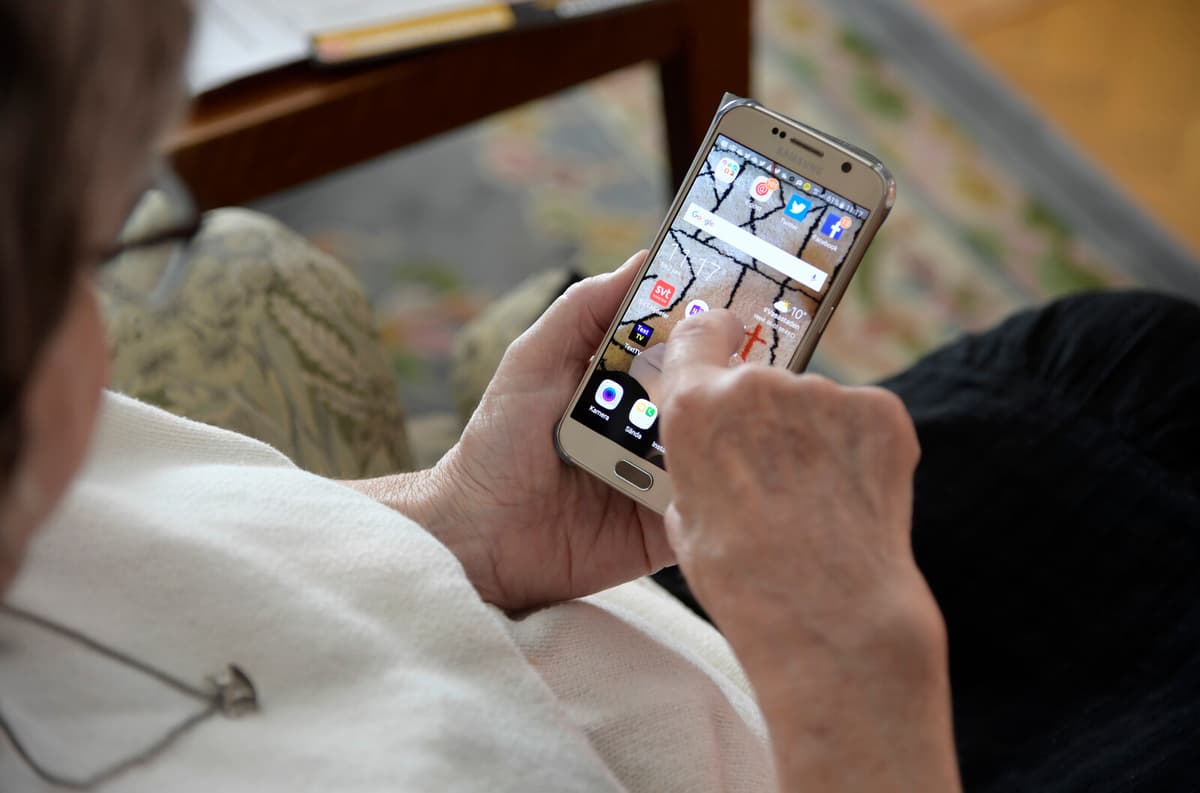Often, the debate about brains and screen use concerns children and young people whose brains are still developing. But for already developed brains, daily use can have a completely different impact, according to researchers.
It is American researchers who have made a meta-analysis where they looked at the results of several studies on the topic. In total, it's about over 400,000 people over 50 years old. The conclusion of the analysis is that nearly 90 percent of those who used smartphones regularly to a greater extent retained their cognitive ability than others.
It's a very interesting study that supports previous research that technology can provide support to delay the decline of cognitive abilities, says Line Christansen, university lecturer and doctor of applied health technology at Blekinge Institute of Technology, who researches technology use among the elderly.
Internet-free childhood
The participants in the study were on average 69 years old and belong to a generation that did not have the internet from childhood.
In the generation that was a pioneer in using digital technology in everyday life, this is linked to a reduced risk of cognitive impairment and dementia, says Michael Scullin, researcher in cognitive neuroscience at Baylor University and one of the study authors to New York Times.
The conclusion of the study, which is published in the journal Nature human behaviour, is that those who used computers, smartphones, the internet, or a combination of all performed better on cognitive tests and to a lesser extent had a dementia diagnosis than those who avoided technology.
The studies cannot conclude that it is the digital use that improves brain health. But since many of the studies take into account other factors that affect cognition, such as length of education, blood pressure, and physical activity among participants, researchers believe that there is a strong association.
Learning new things
That it is so may be because apps facilitate various everyday tasks such as paying bills and maintaining social contacts – something that has been shown to be important for cognition in older ages. As well as learning new things in general.
Today, there is no strong evidence that technology use improves cognition among the elderly, but that digital technology use can contribute to maintaining cognitive abilities is very good in itself. What we know for sure is that cognition deteriorates with age, says Line Christiansen.
Then the question is what type of technology is best and when it should be introduced, we don't know that yet, she says.






